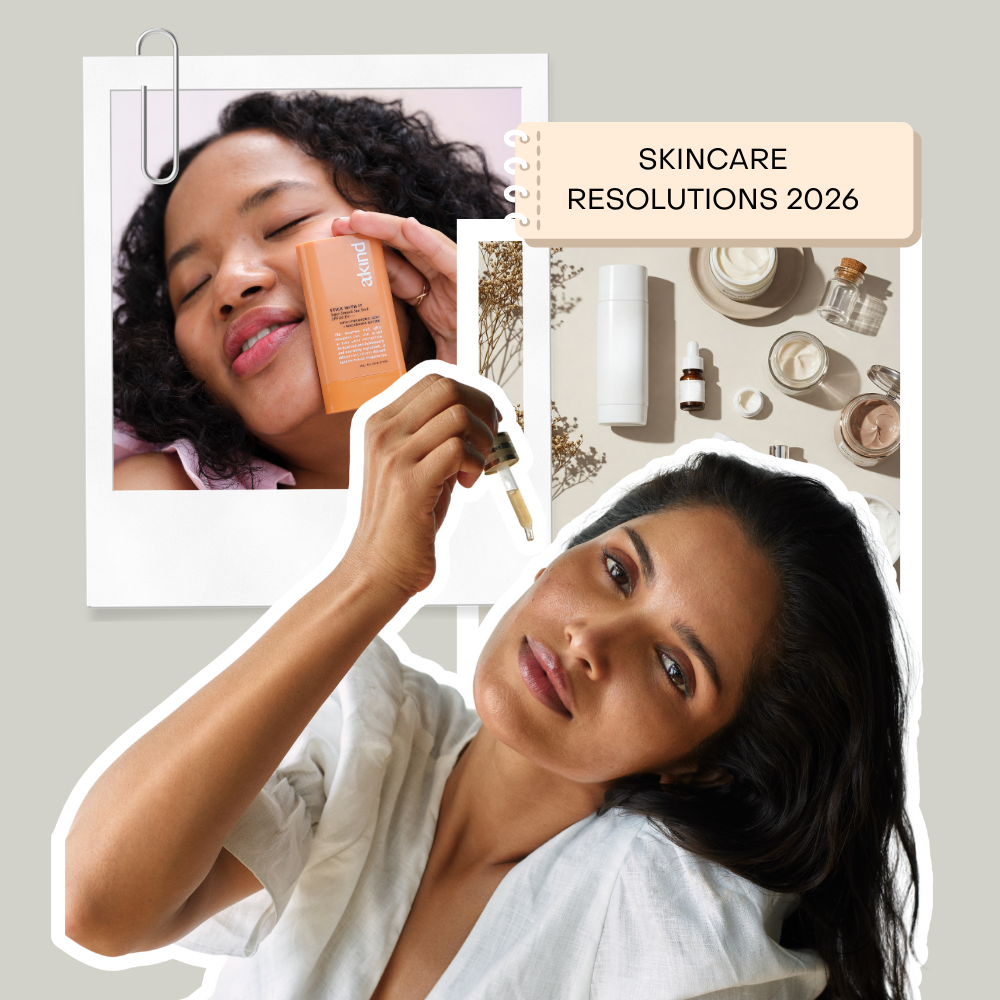
Pregnancy can look different for different women—some might sport the most radiating glow of their lives while others can have to contend with sudden bouts of acne and skin sensitivity. Since skincare doesn’t adhere to a one-size-fits-all approach, we asked Dr Harshna Bijlani, medical head at The AgeLess Clinic, to draw up a skincare routine for these important nine months of a woman’s life—and the period that comes after it.
How to devise a pregnancy skincare routine
For starters, Dr Bijlani wants you to know that the physical and emotional changes of pregnancy extend to the skin as well. “As your body undergoes the beautiful transformation of nurturing new life, it's essential to adapt your skincare routine to address specific needs and concerns that arise during this time,” she explains. From managing hormonal fluctuations to staying vigilant about pigmentation, here is how to address skincare during pregnancy:
Hydration:
Pregnancy can lead to dry skin due to hormonal changes. Drink plenty of water and use a good moisturiser to keep your skin hydrated.
Sun protection:
Hormonal changes can make your skin more sensitive to the sun. Use a broad-spectrum sunscreen with at least SPF 30 daily to prevent sunburn and protect against pigmentation changes that can occur during pregnancy.
Cleansing:
Use a gentle, pregnancy-safe cleanser to clean your face. Avoid harsh or abrasive products that can irritate your skin.
Acne:
Some women may experience acne flare-ups during pregnancy due to hormonal changes. Consult with a skin expert to determine pregnancy-safe treatments and products to manage acne.
Stretch marks:
While it's difficult to prevent stretch marks entirely, keeping your skin moisturised with creams or oils specifically designed for pregnancy may help reduce their appearance.
Linea nigra:
A dark vertical line that can appear on the abdomen during pregnancy, this is a common occurrence that typically fades after childbirth. There are no specific skincare products to prevent or treat this but it's advisable for women to minimise sun exposure to the abdominal area, as an excess of the same can potentially darken the line.
Melasma:
This is a common skin condition during pregnancy, characterised by brown or greyish-brown patches on the face. Sun protection and topical treatments recommended by a skin expert can help manage melasma.
Pigmentation:
In addition to melasma, some women may notice changes in skin pigmentation elsewhere on the body like the underarm area, inner thighs, back of the neck and even nipples. Sunscreen and pregnancy-safe skincare products can help manage these changes.

How to devise a postpartum skincare routine
During the postpartum period, your skincare needs may continue to evolve as your body recovers from pregnancy and childbirth, advises Dr Bijlani. Here are the main postpartum skincare needs to keep in mind during this period.
Hormonal fluctuations
The changes in the body after childbirth can lead to various skin issues, including acne and increased oiliness. Continue using a gentle cleanser to maintain skin cleanliness. Consider spot treatments with ingredients like salicylic acid or benzoyl peroxide for acne management, but always check with your healthcare provider if you are breastfeeding. All other acne products including topical antibiotic and anti-inflammatory creams can be restarted during this time. You can also consider in-clinic anti-acne treatments to wave off your acne issues. Also, oral medications for acne should be avoided or taken under medical supervision.
Melasma and hyperpigmentation
Melasma, dark patches on the skin and hyperpigmentation like linea nigra, dark underarms and dark nipples may take 6-8 months to lighten naturally. However, brightening creams can be used to reduce pigmentation in these areas. Continue using broad-spectrum sunscreen with at least SPF 30 daily to prevent further pigmentation changes. Products with ingredients like AHAs, vitamin C, niacinamide, kojic acid and other skin lightening agents that help fade dark spots can be restarted during this time. In-clinic treatments for melasma and hyperpigmentation including lasers, peels, micro needling, PRF vampire facial and MNRF can be considered during the postpartum period under a skin expert’s supervision.
Dry skin and stretch marks
Dry skin can be a concern postpartum and stretch marks may still be visible. It helps to use a hydrating moisturiser to combat dryness. For stretch marks, products with ingredients like hyaluronic acid, collagen or retinoids—if recommended by a healthcare provider—may help over time. Addressing stretch marks at an early stage when they are red with in-clinic treatments can bring better results.
“The postpartum period can be hectic, so it's a good idea to simplify your skincare routine. Focus on the essentials of cleanser, moisturiser and sunscreen and the rest will work itself out,” she concludes.
Add to cart:
Consider these handy essentials from Tira Beauty to fortify your pregnancy skincare routine as well as postpartum care:
1. Cetaphil Gentle Skin Cleanser
2. Re'equil Ceramide & Hyaluronic Acid Moisturizer
3. Laneige Water Bank Blue Hyaluronic Cream For Combination To Oily Skin
4. The Face Shop Pomegranate And Collagen Volume Lifting Cream








.PNG)























